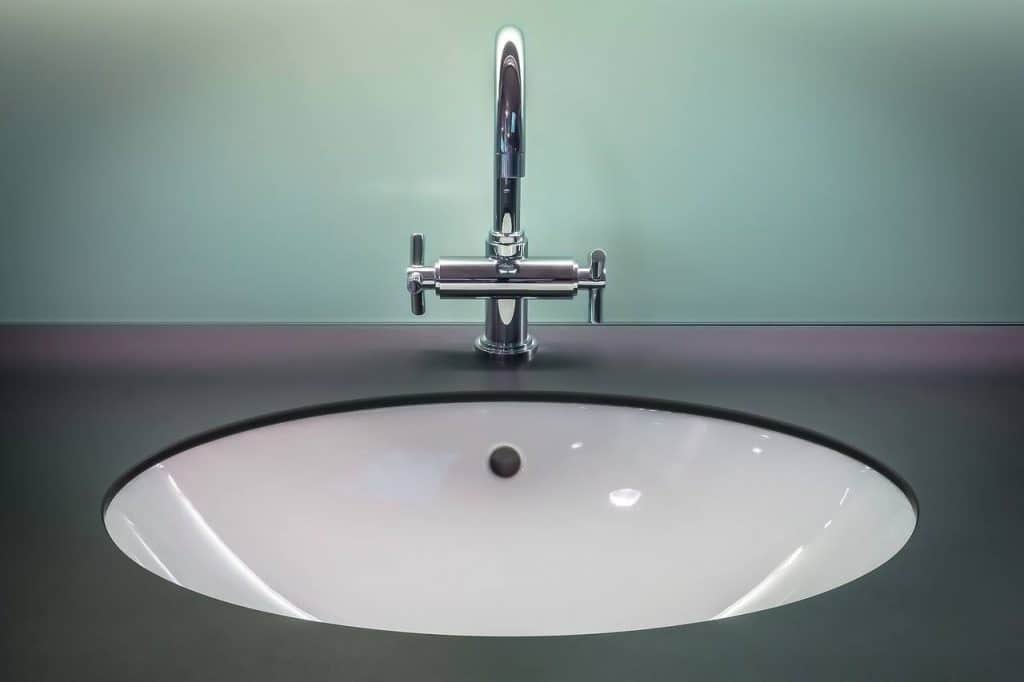If your sinks, showers, and tubs are marred by ugly white or brown spots, you likely have an issue with hard water. Hard water stains detract from the attractiveness of your bathroom or kitchen fixtures, and if left unattended, they will get nothing but worse. The worse they get, the harder it is to remove the sediment buildup. The solution to this is a hard water remover, and this article will discuss the best available hard water removers.
Causes Of Hard Water Stains
Hard water is caused by high mineral content in your tap water. White hard water stains come from water that has a high content of limestone, resulting in calcium and magnesium buildup. If the hard water stains are rust-colored or reddish, they likely come from iron-rich water. Though it can wreak havoc on plumbing fixtures, tap water rich in minerals often has a better taste than softer waters—think about all the mineral waters available at the supermarket and their high costs.
The downside to hard water is a buildup in hard water stains. Depending on how hard your tap water is, any water left on the surfaces of your sinks, tubs, toilets, and showers will probably end up leaving hard water residue that turns into stains. If these hard water stains are not removed regularly, they will build up just like the limestone stalactites and stalagmites build up inside caves. The minerals in your hard water can also build up in your shower head to where it will hurt the water flow, sometimes even stopping it completely.
Why Removers Are Important
The first reason to use a hard water remover is that hard water stains are ugly. They mar the clean, smooth look of your sinks, showers, bathtubs and even the toilets. As stated above, hard water stains will only grow if hard water removers are not used. This not only makes them more difficult to remove but can also interfere with the cleaning power of detergents and shampoos. More of these cleaning products will need to be used to have the same effect under hard water.
This reduction in cleaning power can also lead to other types of staining. Soap scum, sediments, and other debris form more readily on surfaces that have hard water stains. If you have ever had an issue with hard water stains, you will probably understand the reason for this as hard water stains can be rough and collect debris as water exits the tub, shower, or sink.
Hard Water Removers That Work

Image by Pexels from Pixabay
A good rule of thumb when using any cleaning product (including hard water remover) is to try the least impactful methods of cleaning before looking to use cleaners with harsh chemicals and the resulting nasty fumes that irritate both your nose and skin. With hard water removers, these less drastic methods of removing hard water stains are best done as a preventative measure or regular maintenance. If you have hard water stains that have been growing, stains that mar large amounts of your sinks, showers, or tubs, the more natural ways of removing hard water stains might be insufficient for the job.
Vinegar or Lemon Juice
Vinegar to Improve Water Flow through Taps and Shower Heads
Vinegar to Remove Mineral Buildup in Appliances
Vinegar and Baking Soda
CLR Pro Lime and Rust Remover
Conclusion
There is no better-tasting water than one high in mineral content, but that mineral content leads to hard water stains that can mar your bathroom and kitchen. Following the above methods for using hard water removers will keep this from happening if you have hard water. Once you get rid of your hard water stains, remember to keep them from returning.
Leave a Reply